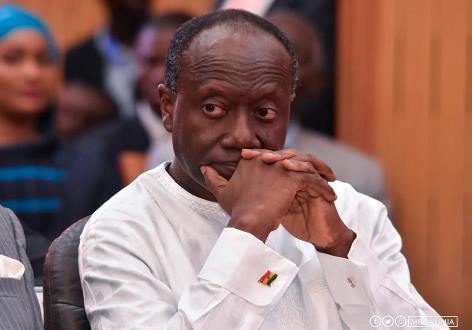Ghana has dropped six places to 13 out of 20 countries assessed in the 2019 Absa Financial Market Index ranking.
The drop is said to be based on what the authors report describe as “low wholesale foreign exchange market turnover” despite making some strides in the area of attractive tax environment.
Head of Global Market, Absa Regional Operations, George Asante, noted that Ghana’s drop does not necessarily mean that it performed poorly in all the pillars reviewed but rather the rate of reforms undertaken by other countries outpaced Ghana.
He said what should look at is the reforms that the country has undertaken in developing its financial markets over the period.
“For instance, if you look at the individual pillars, you will realise that Ghana shot up especially in Market Depth, Liquidity of instruments issued on the stock Ghana Stock and by government. This is what we should also look at,” he stated.
On concerns that Ghana’s reforms have been a little bit slow, Mr Asante noted that some of these measures take a little bit of time before they really impact the activities on the local market.

What is Africa Financial Markets Index?
The Index tracked performances of financial markets in 20 African countries on six main pillars that are Market depth, Access to foreign exchange, Market transparency and regulation, Capacity of local investors, Macroeconomic opportunity and Enforceability of international financial agreements.
The markets surveyed are; South Africa, Mauritius, Kenya, Namibia, Botswana, Nigeria, Tanzania, Zambia, Rwanda, Uganda, Egypt, Morocco, Ghana, Seychelles, Mozambique, Ivory Coast, Angola, Senegal, Cameroon and Ethiopia.
The Index tracked progress over a period, by supplying a toolkit for countries wishing to build financial infrastructure.
South Africa topped the index due to its sizeable lead in ‘Market Depth’ followed by Mauritius, Kenya, Namibia, Botswana and Nigeria.
According to Absa, there has been significant improvement for the individual countries since the index was first established in 2017. Since then, countries have taken steps to align their local market infrastructure with global standards.
How Ghana fared in the other Pillars?
Ghana made some strong showing in at least three out of six pillars that Absa Africa reviewed in the rankings.
For instance, when it came to Pillar three Market Transparency, Tax and Regulatory Environment, Ghana was ranked 5 out of 20 countries ranked in this Pillar with a score of 85 over 100.
This Pillar assessed countries regulatory and tax environment for their financial markets. These factors according to Absa play a fundamental role in offering investors incentives to invest in the financial markets.
Also on Market Depth, Ghana was ranked seven with a score of 50 over 100.
However, when it came to legality and enforceability which it was ranked 10 with a score of 55 over 100 and with Macro-Economic opportunity, it placed 11 out of the 20 countries reviewed.
With Access to foreign exchange, it was ranked 17 out of 20 countries.
Bank of Ghana on the country’s rankings on the index
Reacting to aspects of the Index, the First Deputy Governor of the central bank, Dr Maxwell Opoku-Afari noted that some of the concerns raised in the report are already being worked.
He, however, raised issues on how the assessment was done, especially when it came to Foreign Exchange supply in Ghana.
“We think most of the data used were from 2018 and that also contributed to our poor showing but we expect this to reflect on the 2020 index,” he said.
On the supply of Foreign Exchange issue; he said, “the assessment was not comprehensively done, because again it excluded Bank of Ghana’s participation from the market and just focused on the supply of dollars by commercial banks. That’s why our showing in this pillar was not good at all”.
“But don’t forget Bank of Ghana takes all cocoa proceeds that come and later supplied to the banks” the first Deputy Governor added



